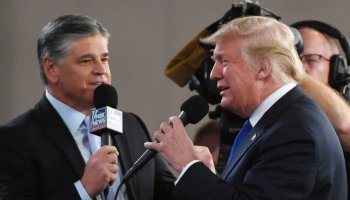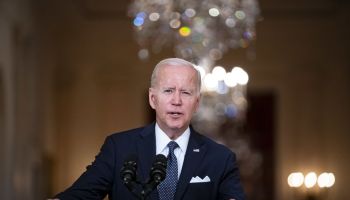I was amused this evening to catch a glimpse of a CNN show asking this question, as if either characterization is correct. In my judgment, based on what I know from the media thus far, Snowden is neither a hero nor a traitor, but he is most certainly a criminal who deserves serious punishment.
I say this as someone who believes strongly in government transparency, but even more strongly in the orderly rule of law. Snowden knowingly accepted a position of trust in his relation to the government. He did not have to accept his job, but he did. A clear condition of that job was his voluntary agreement not to disclose any classified information – that is, information the disclosure of which could reasonably endanger the security of the nation.
The government cannot always attach conditions to employment. For example, it cannot constitutionally require its employees to agree never to criticize the president or never to get an abortion or never to invoke their rights under the Fourth Amendment. But it is well-settled that the government can require its employees to agree to some conditions, and one of them is not to disclose classified information.
As the Supreme Court held in Snepp v. United States in 1980, not only can government employees constitutionally be required to agree not to disclose classified information, but they can even be required to agree, as a condition of employment, not to publish “any information or material relating to . . . intelligence activities” even after they leave the government service without “specific prior approval.” As the Court emphasized, an employee’s disclosure of “material relating to intelligence activities can be detrimental to vital national interests.”
But what if the employee decides, in his own wisdom, that some classified information doesn’t need to be classified or that it would be good for the public to know the classified information? Should the employee be allowed to make that judgment? Merely to state the question is to answer it. There is no reason on earth why an individual government employee should have the authority, on his own say so, to override the judgment of the elected representatives of the American people and to decide for the nation that classified information should be disclosed to friends and enemies alike. Such an act is a complete usurpation of the rule of law.
Now, this is not to say that there might not be situations in which it would be in the national interest for certain classified information to be disclosed to the public. It is easy to think of situations in which the decision to classify certain information is misguided, corrupt and dangerous to the nation. In some situations the information may be classified not to protect the national security, but to protect public officials from exposure. Perhaps they have acted foolishly, callously, unlawfully or unconstitutionally.
Perhaps it is important for the American people to know what their representatives are doing – even though the information is classified. Sometimes, the disclosure may be harmless to the national interest, sometimes the harm caused by disclosure may be outweighed by the benefits of disclosure.
The problem, and it is a problem that must be taken seriously, is who gets to decide when classified information should be made public? Who gets to put the national security at risk? The solution must be the creation of a clearly defined and credible procedure through which would-be leakers can bring their concerns to an independent panel of experts who can make a formal and professional determination whether the information at issue should be declassified. The absence of such a procedure leaves would-be leakers, who think they are acting heroically, with no recourse but to keep silent or plunge ahead in ignorance, with potentially grievous consequences for the nation.
In the absence of such a procedure, what should Edward Snowden have done? Probably, he should have presented his concerns to senior, responsible members of Congress. But the one thing he most certainly should not have done is to decide on the basis of his own ill-informed, arrogant and amateurish judgment that he knows better than everyone else in government how best to serve the national interest. The rule of law matters, and no one gave Edward Snowden the authority to make that decision for the nation. His conduct was more than unacceptable; it was criminal.
SOURCE: HuffingtonPost.com
Article Written by Geoffrey R. Stone and Courtesy of The Huffington Post
Picture Courtesy of Getty Images and The Huffington Post
Is Whistleblower Edward Snowden a Hero or a Traitor? was originally published on wzakcleveland.com















